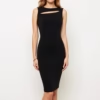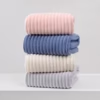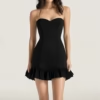Successfully pitching your product to retail buyers is a crucial step in expanding your business. It requires thorough preparation and a strong understanding of what will make your product stand out in a competitive market. Here are ten essential things you must prepare to impress retail buyers, along with examples to guide you.
1. In-depth Market Research
Before approaching retailers, conduct comprehensive market research to understand their business and customer demographics. Tailor your pitch to show how your products align with their store’s aesthetics and customer needs.
Example: If you’re pitching eco-friendly clothing to a boutique known for sustainable fashion, demonstrate how your products meet sustainability standards and appeal to eco-conscious consumers.
2. Compelling Brand Story
Your brand story should resonate with the retailer and their customers. Highlight your brand’s unique selling propositions (USPs), mission, and values, and how they align with the retailer’s ethos.
Example: “We are EcoWear, a brand dedicated to creating high-quality, environmentally-friendly fashion. Each piece in our collection is made from 100% organic materials and helps reduce the industry’s carbon footprint. Our mission aligns perfectly with [Retailer’s Name]’s commitment to sustainability.”
3. Professional Line Sheet
A well-organized line sheet is essential for presenting your products professionally. It should include high-quality images, detailed product descriptions, pricing, and order terms.
Example: Include a page with:
- Product images from various angles.
- Descriptions like “Organic Cotton T-shirt – Available in S, M, L – Colors: Green, Blue.”
- Wholesale price: $10 per unit.
- Suggested retail price: $25.
- Minimum order quantity: 20 units.
4. Product Samples
Provide actual samples of your product to allow buyers to experience the quality firsthand. Ensure these samples are pristine and represent your products accurately.
Example: Send a sample box containing your top-selling items along with a note explaining the unique features of each product. “Enclosed are samples of our bestsellers, including our signature organic cotton T-shirt. Feel the difference our high-quality materials make.”
5. Strategic Pricing
Carefully consider your pricing strategy. Ensure it is competitive yet allows enough margin for both you and the retailer. Clearly outline your pricing, including wholesale costs, suggested retail prices, and any volume discounts.
Example: “Our wholesale price for the EcoWear cotton T-shirt is $10, with a suggested retail price of $25. For orders exceeding 200 units, we offer a 10% discount.”
6. Clear Order Terms and Conditions
State your terms regarding minimum order quantities (MOQs), payment terms, shipping policies, and return/exchange protocols. Clear terms prevent misunderstandings and demonstrate your professionalism.
Example: “Orders must meet a minimum of 20 units per style. We operate on Net 30 payment terms and offer free shipping on orders over $500. Returns are accepted within 30 days for a full refund.”
7. Tailored Sales Pitch
Craft a customized pitch that speaks directly to the retailer’s needs. Explain how your products can benefit their store and fit into their current inventory.
Example: “Based on your store’s focus on sustainability, our eco-friendly apparel will resonate with your customer base. Our vibrant color palette and high-quality fabrics align with your existing product range, providing variety and enhancing sustainability offerings.”
8. Promotional and Marketing Plan
Describe your promotional strategy and how it will drive sales in their stores. Retailers appreciate brands that actively contribute to marketing efforts.
Example: “We plan to launch a social media campaign featuring influencer partnerships to promote our products. Additionally, we’ll provide in-store promotional materials and cross-promote your store on our social media channels.”
9. Solid Supply Chain and Production Capacity
Assure buyers of your ability to meet demand reliably. Highlight your production capacity, lead times, and how you handle quality control.
Example: “Our production facility is capable of scaling up to meet high-volume demands. We maintain a stringent quality control process, ensuring the highest standards for every piece. Lead times for new orders are typically 4-6 weeks.”
10. Follow-Up Plan
Outline how you will follow up post-pitch. This could involve sending additional information, arranging meetings, or providing updates on product developments.
Example: “Thank you for considering EcoWear. I will follow up next week to discuss any questions and arrange a time to review the order process. Meanwhile, please don’t hesitate to contact me at john@ecowear.com with any queries.”
Elevate Your Pitch with Stylebuy
Ready to take your retail pitches to the next level? Sign up as a seller on Stylebuy.net and access a network of retailers eager to discover unique products like yours. Enhance your brand visibility, streamline your wholesale operations, and grow your business with Stylebuy’s wholesale marketplace platform.
Related






















































